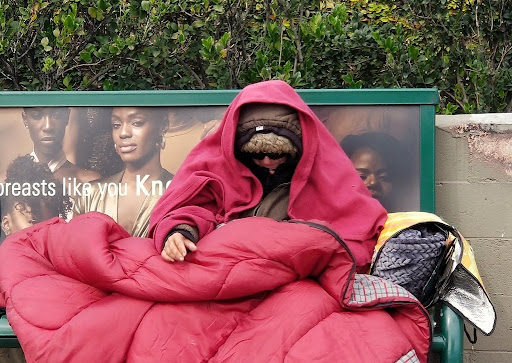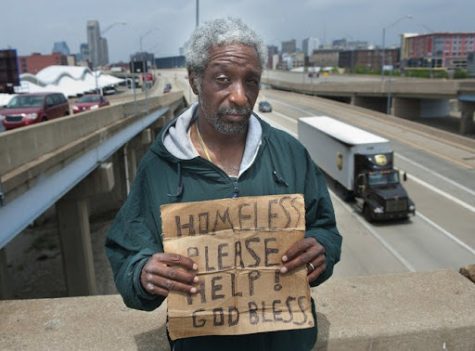“We are people too” – Homelessness Part II

Many Angelinos have grown used to the presence of the homeless population in the streets of LA, and it’s common to forget that they too are people that have just been excluded from society.
Homeless people in Los Angeles express their feelings about how they are treated by the general population and their life stories.
Samantha “Cookie” Jackson shares her story about her heroin addiction, “I have tried to sober up, and I don’t do it around public but that’s all people see me as.” She claims that people see her as “an addict who wastes her money on drugs.”
Jackson also mentions how she had tried to get a job, “I applied for a bunch of places to work but it was always the issue of how to receive my money because I don’t have a bank account.” She mentions this to address the statements she has heard, “‘Just get a job and earn your own money’ people say but it’s not that easy.”
Antione Vessar explains what he believes to be the worst parts of homelessness, “No one even waves at me. And people are scared of me.” Vessar was in the military for 13 years before he had to leave due to PTSD and major anxiety affecting his daily routine. “It’s not easy being black and homeless. People already think I’m trying to attack them. You’re the first person I’ve had a conversation with this week.”

“I ended up homeless because I didn’t want to be around people,” Explains Vessar. Vessar often gets schizophrenia and PTSD episodes of him in a battle zone and mentions he is scared of hurting those around him during these episodes. “I have two granddaughters who lived with me and when my PTSD got worse, I was scared of hurting them so I left the house.”
Vessar also wants to address stereotypes about homeless folks, “I am not on any drugs. I really am hungry. I just want a friend, I promise I don’t want to cause any harm.”
Mary Hill shares her troubles of being homeless as a woman, “You know we women, we bleed every month and sometimes we don’t have access to clean feminine products.”
She explains that not having enough money for a healthy diet can cause changes in her menstrual cycle, making it difficult to know when it’s coming and to prepare for it. “I barely have enough money for food, let alone feminine products and a nice clean shower.”
Zoey Lewis also mentions the burdens of being homeless as a woman, “Yes feminine products are usually an issue but we also tend to get sexualized a lot and some people try to treat us like prostitutes.” Lewis mentions that she became homeless due to domestic violence that she was experiencing with her husband. “The only reason I’m out here is because I needed to escape my husband and I know this is not the ideal place but this is better than my home.”
Lewis ended our conversation with a statement she wanted to share with the public on behalf of all homeless folks, “We are people too. We are people’s daughters, sons, sisters, brothers, etc. We are people too and all we ask for is to be treated like people.”
Your donation will support the student journalists of North Hollywood High School. Your contribution will allow us to purchase equipment and cover our annual website hosting costs.

Olivia Ortabasi • Nov 19, 2021 at 1:32 PM
This article was so eye-opening. Homeless people are often judged by first glance so actually getting insight on their feelings and situation is really enlightening. I thought it was very good that you interviewed people from different backgrounds and even mentioned race and gender struggles.